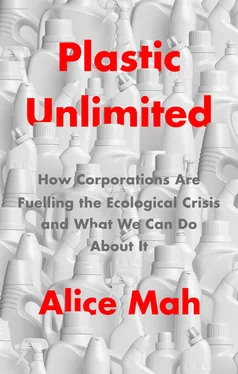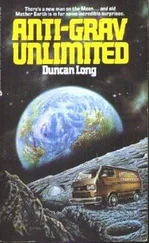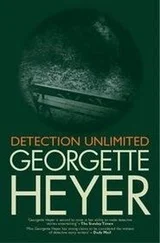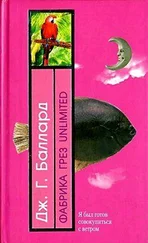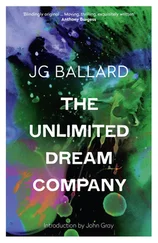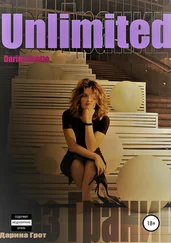All rights reserved. Except for the quotation of short passages for the purpose of criticism and review, no part of this publication may be reproduced, stored in a retrieval system or transmitted, in any form or by any means, electronic, mechanical, photocopying, recording or otherwise, without the prior permission of the publisher.
ISBN-13: 978-1-5095-4945-0
ISBN-13: 978-1-5095-4946-7 (pb)
A catalogue record for this book is available from the British Library.
Library of Congress Control Number: 2021948544
by Fakenham Prepress Solutions, Fakenham, Norfolk NR21 8NL
The publisher has used its best endeavours to ensure that the URLs for external websites referred to in this book are correct and active at the time of going to press. However, the publisher has no responsibility for the websites and can make no guarantee that a site will remain live or that the content is or will remain appropriate.
Every effort has been made to trace all copyright holders, but if any have been overlooked the publisher will be pleased to include any necessary credits in any subsequent reprint or edition.
For further information on Polity, visit our website: politybooks.com
The idea for this book was sparked by reflecting on the continual expansion of global plastics production despite international efforts to tackle plastic pollution, the climate crisis, and the COVID-19 pandemic. I am grateful to Louise Knight at Polity Press for encouraging me to pursue this project and for working with me to help it take shape. I also thank the whole Polity team, particularly Inès Boxman and Justin Dyer for editorial guidance. From the beginning, I was filled with a sense of urgency at the invitation to delve deeper into the corporate roots and toxic consequences of the escalating plastics crisis.
I thank the Leverhulme Trust for providing funding to research and write this book through the Philip Leverhulme Prize. Some parts of chapter 3are revised versions of work that was originally published in my article ‘Future-Proofing Capitalism: The Paradox of the Circular Economy for Plastics’, Global Environmental Politics , 21(2) (2021): 121–42, available open access, which received funding from the European Research Council (ERC) under the European Union’s Horizon 2020 research and innovation programme (grant agreement 639583) and the Leverhulme Trust.
Many thanks to two anonymous readers of the manuscript who provided generous and constructive feedback, particularly on nuancing the early history of plastics, the analysis of corporations, and the discussion of waste colonialism. I also thank two readers of the book proposal for their valuable advice on refining the corporate focus of the project. I gratefully acknowledge Nerea Calvillo and Sandra Eckert for offering helpful comments on early drafts, and David Brown for excellent research assistance. A big thanks to the Toxic Expertise research team for collaborative insights over the years into different aspects of the complex global petrochemical industry: David Brown, Thom Davies, Lorenzo Feltrin, Patricio Flores Silva, India Holme, Calvin Jephcote, Alexandra Kviat, Loretta Lou, Thomas Verbeek, Chris Waite, and Xinhong Wang. I am also thankful for the intellectual encouragement from all of my wonderful colleagues at the Department of Sociology at the University of Warwick. The final manuscript benefited from my participation in the conference ‘Global Governance of Plastic Pollution: Transforming the Global Plastics Economy’ hosted by the Global Governance Centre at the Graduate Institute in Geneva and the United Nations Conference on Trade and Development (UNCTAD) in August 2021. Thanks to Diana Barrowclough, Luisa Cortat, and Carolyn Deere Birkbeck for the invitation to this timely and important event.
Thanks so much to Eric and Kathy Mah for all the support and encouragement, and to Alex, Erica, and Jennifer Mah for inspiring me through living and thinking ecologically. Thank you to Manuela Galetto, Mouzayian Khalil-Babatunde, and Nirmal Puwar for helping to get me through the intensive months of writing during the pandemic with socially distanced walks. Special thanks to Colin Stephen, who read many drafts closely and supported me and my writing in more ways than words can express. This book is dedicated to our son, Lucian, who has some great ideas about how to save the planet.
The world woke up to the global plastics crisis in 2017 and to the climate emergency in 2018. On the eve of the COVID-19 pandemic, sustainability issues were dominating plastics industry discussions due to the groundswell of public backlash. However, by spring 2020 single-use plastics were back in favour, seen as necessary to fight the virus. Plastic recycling programmes ground to a halt, their viability thrown into question as the price of crude oil plummeted. People despaired over the piles of takeaway containers and facemasks strewn over public spaces, but global attention to the wider issue had shifted. After all, plastic pollution paled in comparison with the more immediate global health crisis. The climate emergency, by contrast, gained considerable political momentum during the pandemic, as governments around the world resolved to accelerate the transition away from fossil fuels through green recoveries.
The plastics crisis is inextricably linked to crises of global heating, toxic pollution, biodiversity loss, and global inequality. It exemplifies an existential planetary threat of overconsumption beyond the sustainable limits of the earth. There are serious social and ecological consequences of sidelining plastic pollution as a lesser kind of crisis competing for bandwidth in a crisis-saturated world. The toxic impacts of plastic pollution compound existing social inequalities concentrated in climate-vulnerable coastal communities and in disadvantaged fenceline communities (i.e. communities immediately adjacent to polluting companies) around the planet. If current policies continue, plastic waste is projected to rise from 11 million tons of plastic entering the ocean per year in 2020 to 29 million tons per year by 2040. In the same period, global plastics production is forecast to use 19% of the world’s total remaining carbon budget to keep global heating within the limit of 1.5 degrees. 1Combined with the deadly heat waves, floods, mass extinctions, and pandemics that come with climate catastrophe, the world will be smothered in toxic plastic waste within the span of one generation.
This book argues that corporations across the plastics value chain are fuelling the ecological crisis through the pursuit of unlimited plastics growth, and what is more, they are getting away with it. Since the dramatic rise of plastics production after the Second World War, petrochemical and plastics corporations have fought to expand and protect plastics markets through manufacturing demand, denying risk, and co-opting solutions. Over the years, they have faced existential threats to business, first in a number of toxic scandals linking plastics to cancer and other illnesses, and later in relation to marine plastic waste and the climate crisis. Often, industry leaders have resorted to blatant deception to deny toxic risks in their quest to retain market control. Another industry tactic has been to shift blame to individual consumers and to poor infrastructure in Southeast Asia and Africa. Recently, corporations have become more sophisticated in their sustainability strategies, for example through adopting the circular economy agenda, appearing to embrace green initiatives while pursuing unsustainable growth. They have also played one crisis off against the other, proclaiming plastics in wind turbine blades and electric vehicles as the solution to climate change. Their aim has been to deflect public attention from the key problem: plastics production.
Читать дальше
